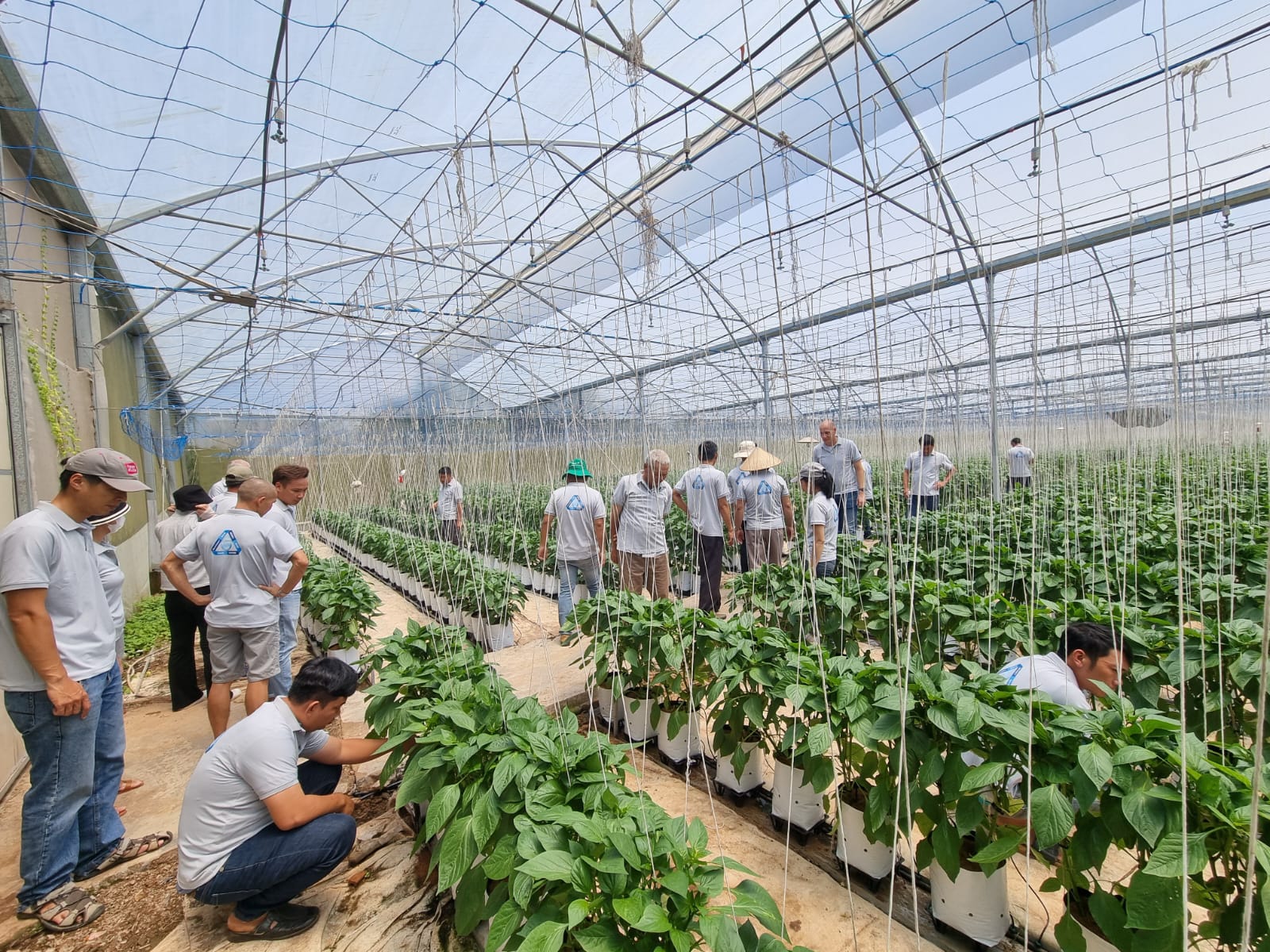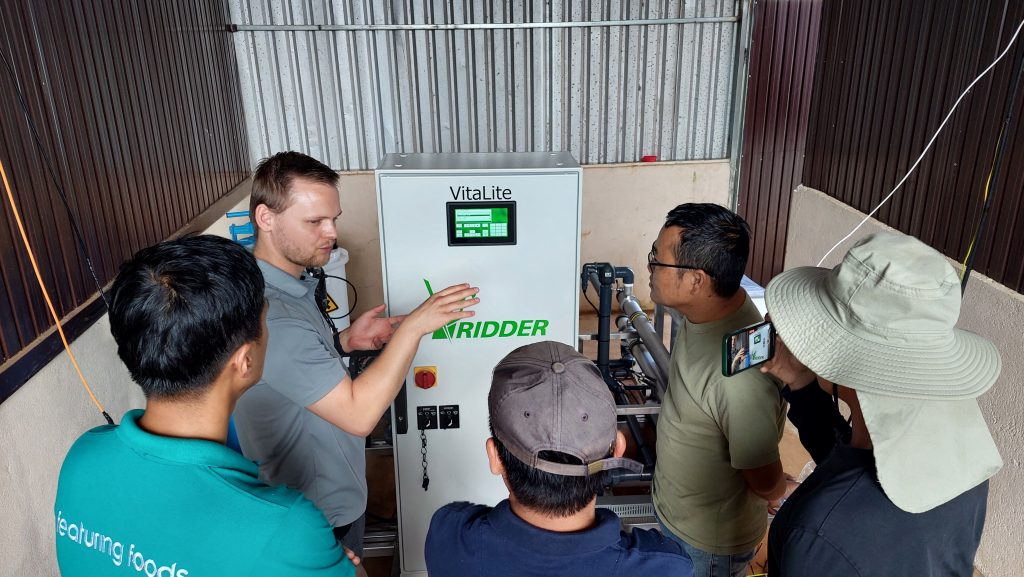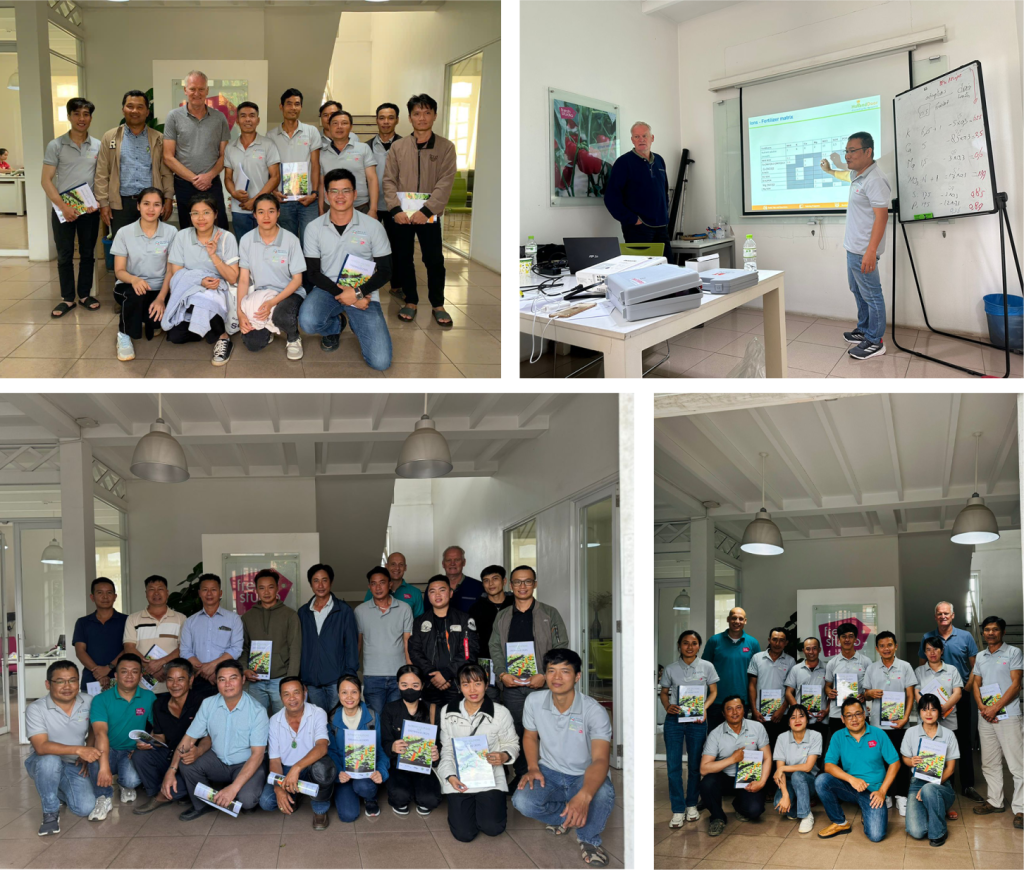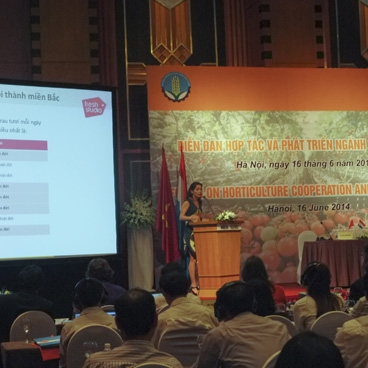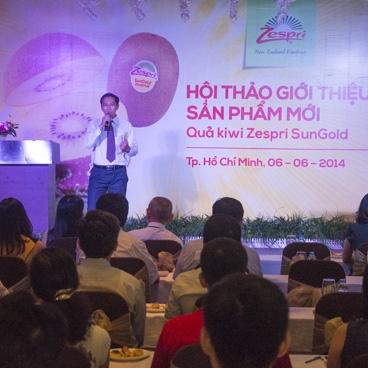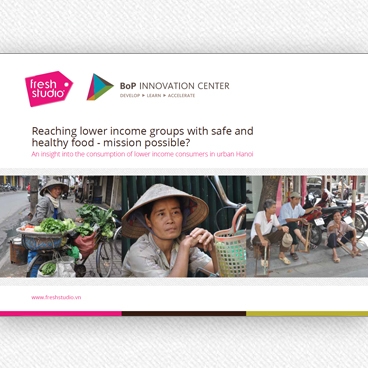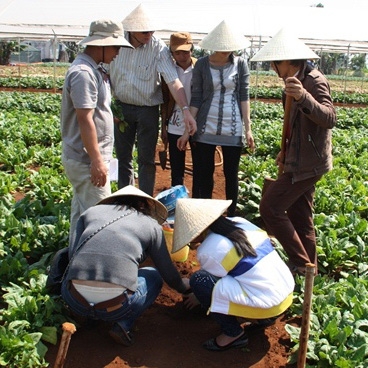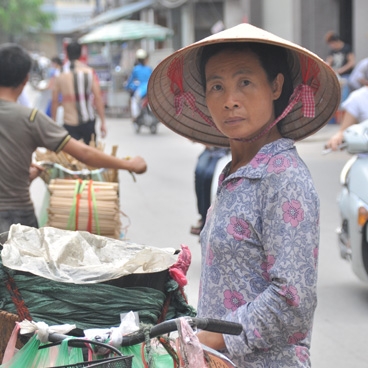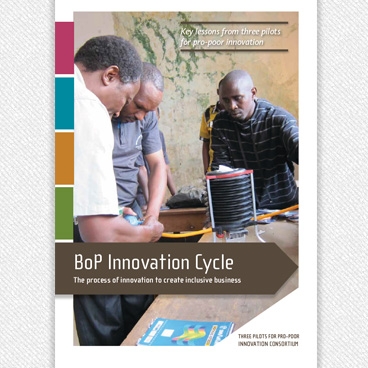With the arrival of 2 VitaLite systems from Ridder Group and water tanks from Royal Brinkman the 2 pilot farmers and the project partners of the project: “Improving water availability and safety through optimized irrigation and fertilizer application by hydroponic growers in Vietnam” implemented under the Partners for Water program, have been very busy to setup and commission 2 systems to collect and recycle drain water. Now that we can collect and recycle drain water at the 2 pilot locations, we start a new phase in the project focusing on sharing knowledge regarding drain water recycling and collecting data to quantify the return on investments, water efficiency and fertilizer savings.
Last week HollandDoor and Fresh Studio organized the first field days to show the drain water recycling system to interested growers and organized several training sessions on irrigation and fertigation strategies in combination with drain water recycling.
Thuy Farm and Garden Mountain are proud to be the first 2 pilot locations where drain water is collected and disinfected and re-used. Both farms acknowledge that although they have expanded their sweet pepper production area in recent years, they worry about the costs of fertilizer application and availability of sufficient irrigation water. Especially at the end of the dry season water availability is becoming an issue in certain areas of Lam Dong province. This is illustrated by the ever-deeper wells being drilled to pump up irrigation water. Through recycling drain water both see the opportunity to save fertilizer and reduce their production costs while at the same time increase their water use efficiency.
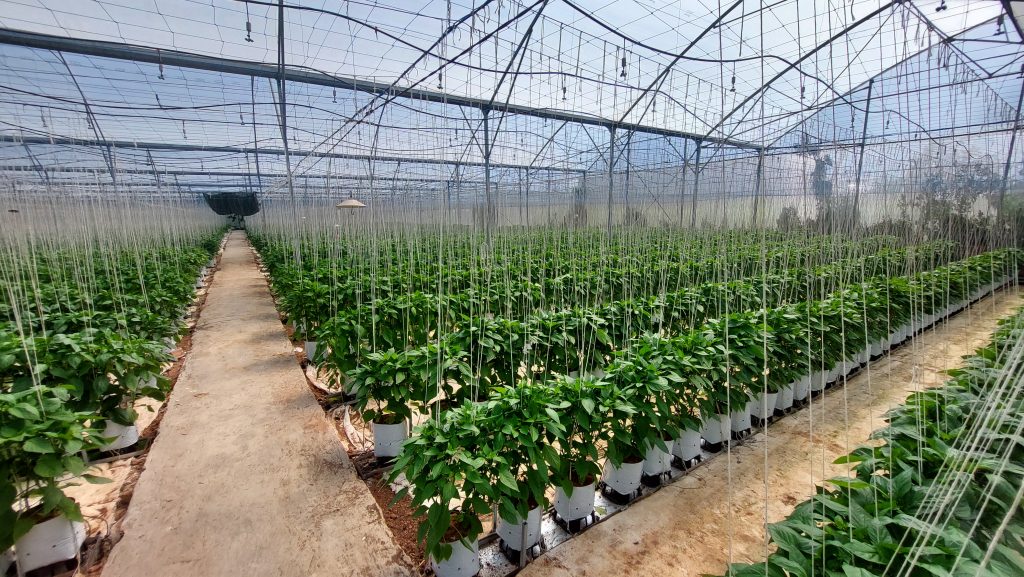
It is great to see that although the project supports financially around 2,500 m2 to start collecting drain water, both farms have invested themselves to expand the area to collect drain water to around 10,000 m2 for both locations. They plan to expand the drain water collection area further in the coming period.
With the installation of the drain water collection and disinfection system at both locations the project can start to collect data to quantify how fast the investment in a drain water recycling system can be earned back and how much water and fertilizers can be saved. This data is important to convince other farms to invest also in a drain water recycling system. That there are now 2 drain water recycling systems installed and accessible to other growers to see with their own eyes greatly contributes to making growers aware and understand how such a system works and that it is interesting to consider. The great turnout and discussions during the first field days in which growers were invited to visit both pilot drain water recycling locations proved this point.
Recycling drain water has an impact on the irrigation and fertilizer strategy a grower applies. For example, it opens the possibility to work with a higher drainage % to optimize crop performance without increasing fertilizer application costs. The ratio of nutrients applied, and the monitoring of nutrients present in the drain water are important points to consider when recycling drain water. Geerten van der Lugt (HollandDoor) together with Lo Xuan Dung (Fresh Studio) trained growers interested in drain water recycling in these aspects.
For more information about this project please contact:
René van Rensen
- Managing Partner – R&D Director Crops
- Info@freshstudio.vn

The Partners for Water program is implemented by the Netherlands Enterprise Agency (RVO) on behalf of the Ministries of Infrastructure and Water Management, Foreign Affairs, Economic Affairs and Climate and Agriculture, Nature and Food Quality.
For more information see: www.partnersvoorwater.nl

